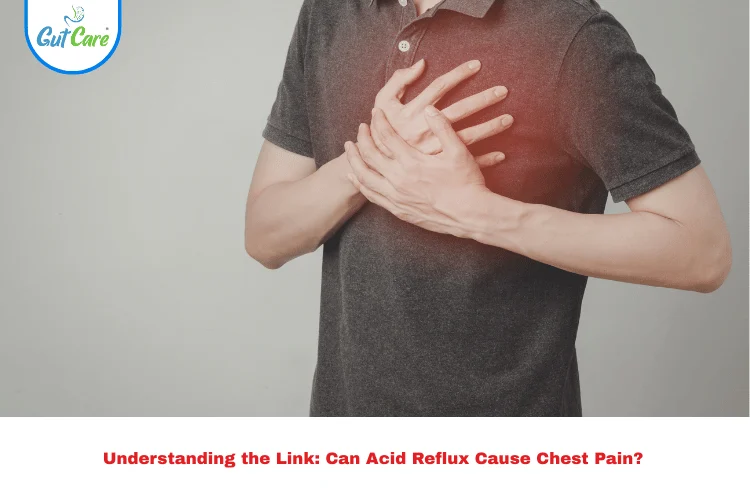Laparoscopic surgery for GERD: Do you have chronic acid reflux that doesn’t go away when you take medicine? For GERD, laparoscopic surgery may be the answer. Gastroesophageal reflux disease (GERD), another name for chronic acid reflux, can cause Barrett’s esophagus, esophageal damage, and extreme discomfort. GERD surgery is an option for long-term relief when medication and lifestyle modifications are ineffective.
What Is GERD and How Does It Affect You?
When stomach acid regularly refluxes into the esophagus, it causes GERD, which manifests as symptoms like:
- Frequent heartburn
- Chest pain
- Difficulty swallowing
- Chronic cough
- Regurgitation of food or sour liquid
For some, medications and dietary changes can manage symptoms. However, for those with severe or medication-resistant GERD, laparoscopic surgery for GERD may be necessary.
Learn more
When Is Laparoscopic Surgery for GERD Needed?
Doctors may recommend acid reflux surgery if:
- Medication and lifestyle changes don’t provide relief.
- There is severe esophageal inflammation (esophagitis).
- The patient develops a hiatal hernia causing GERD symptoms.
- GERD leads to complications like strictures or Barrett’s esophagus.
Laparoscopic surgery for GERD, such as Nissen fundoplication, can effectively prevent acid reflux and restore normal digestive function.
What Is Laparoscopic GERD Surgery?
Actually, the minimally invasive cardiac procedure used to strengthen the lower esophageal sphincter is called “mediastinal surgery.” Because it uses specialized tools and tiny incisions, it is known as minimally invasive surgery. To eliminate the possibility of acid reflux, the most popular procedure is the Nissen Fundoplication, in which the upper portion of the stomach is wrapped around the esophagus.
Laparoscopic Surgery’s Advantages for GERD
Minimally invasive: Less scarring and pain result from tiny incisions.
Fast recovery: In a matter of weeks, the majority of patients can return to their regular daily activities.
Long-term relief: Acid reflux is better managed than with just medicine.
Reduced risk of complications: In contrast to open surgery.
The GERD Surgery Recovery Process
Recovery from antireflux surgery is usually uneventful. What to anticipate is as follows:
- Hospital stay: usually one to two days
- food diet for a few weeks
- short-term difficulty swallowing while the esophagus heals
- gradual return to regular activities in two to four weeks
In order to promote the best possible healing and avoid complications, patients should adhere to their doctor’s dietary and lifestyle recommendations.
Risks and Considerations of GERD Surgical Treatment
While laparoscopic surgery for GERD is highly effective, there are some risks, including:
- Difficulty swallowing (temporary)
- Bloating or gas buildup
- Rarely, revision surgery may be required.
Discuss with your doctor whether GERD surgical treatment is right for you.
Conclusion
Laparoscopic surgery is one of the most efficacious approaches to handling severe acid reflux in a person. If medications and lifestyle changes did not help enough, then this would make the person have an unexpected duration for a minimally invasive GERD surgery. Ask your physician to know whether this is the most appropriate thing for you.
To start the journey of dealing with GERD, visit us today!
FAQs
1. How effective is laparoscopic surgery for GERD?
Laparoscopic GERD surgery has over a 90% success rate, substantially alleviating acid reflux symptoms and enhancing quality of life.
2. In which ways is Nissen fundoplication different from other surgical options for GERD?
Nissen fundoplication is the most widely performed procedure; however, other alternatives include the partial fundoplication or LINX device, depending on individual needs.
3. What is the recovery time for GERD surgery?
Most patients recover within 2–4 weeks and gradually resume normal eating habits and daily activities.
4. Will GERD come back again after laparoscopic surgery?
Recurrence is rare, although some patients may face this problem, especially those whose lifestyle habits foment acid reflux.
5. Is laparoscopic surgery for GERD safe?
Yes, it is a minimally invasive and safe procedure with a low complication risk in experienced hands.
6. What lifestyle changes do I need to follow after GERD surgery?
Patients should consume smaller meals, avoid trigger foods, and maintain a healthy weight to avoid triggering reflux symptoms.




